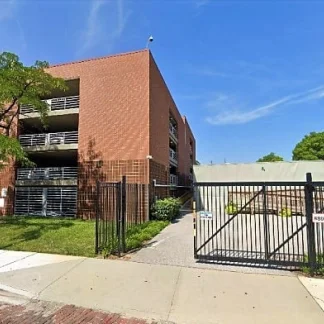The Baltimore Station
The Baltimore Station is an innovative therapeutic residential treatment program...
CAM Center for Addiction Medicine is a drug and alcohol rehab located in Baltimore, Maryland. They provide outpatient addiction treatment, medication-assisted treatment, and telemedicine for addiction.
Addiction-related services at this facility include an intensive outpatient program, medication-assisted treatment (MAT), telemedicine for addiction, and medical detox.
Intensive Outpatient Program CAM offers a full range of outpatient programming, quick intake appointments, and rapid stabilization. Therapists provide individual and group counseling and crisis counseling. 12-Step meetings, HIV/AIDS support groups, psychoeducation classes, and gender-specific support groups are available. New and existing clients can also receive treatment virtually by scheduling a telemedicine appointment.
Medication-assisted Treatment This program first helps individuals detox from substances by using medications to ease withdrawal symptoms and curb drug cravings. For medication-assisted treatment, CAM uses maintenance programs of methadone or buprenorphine, and naltrexone. People who have alcohol use disorder may come in for monthly injections of naltrexone.
Contact us for more information: (410) 225-8240

Connect with CAM Center for Addiction Medicine by calling their admissions team directly.
(410) 225-8240 Website Get DirectionsThe Joint Commission, formerly known as JCAHO, is a nonprofit organization that accredits rehab organizations and programs. Founded in 1951, the Joint Commision's mission is to improve the quality of patient care and demonstrating the quality of patient care.
Joint Commission Accreditation: Yes
The Substance Abuse and Mental Health Services Administration (SAMHSA) is a branch of the U.S. Department of Health and Human Services. Established in 1992 by congress, SAMHSA's mission is to reduce the impact of substance abuse and mental illness on American's communities.
SAMHSA Listed: Yes
Group therapy is any therapeutic work that happens in a group (not one-on-one). There are a number of different group therapy modalities, including support groups, experiential therapy, psycho-education, and more. Group therapy involves treatment as well as processing interaction between group members.
In individual therapy, a patient meets one-on-one with a trained psychologist or counselor. Therapy is a pivotal part of effective substance abuse treatment, as it often covers root causes of addiction, including challenges faced by the patient in their social, family, and work/school life.
In individual therapy, a patient meets one-on-one with a trained psychologist or counselor. Therapy is a pivotal part of effective substance abuse treatment, as it often covers root causes of addiction, including challenges faced by the patient in their social, family, and work/school life.
The Baltimore Station is an innovative therapeutic residential treatment program...
EPOCH Counseling Center West is a private rehab located in Catonsville, Maryland...
JR Healthcare – Behavioral Health is a private rehab located in Baltimore, Maryl...
Freedom Advocates Celebrating Ex Offenders - FACE is a non-profit rehab located ...